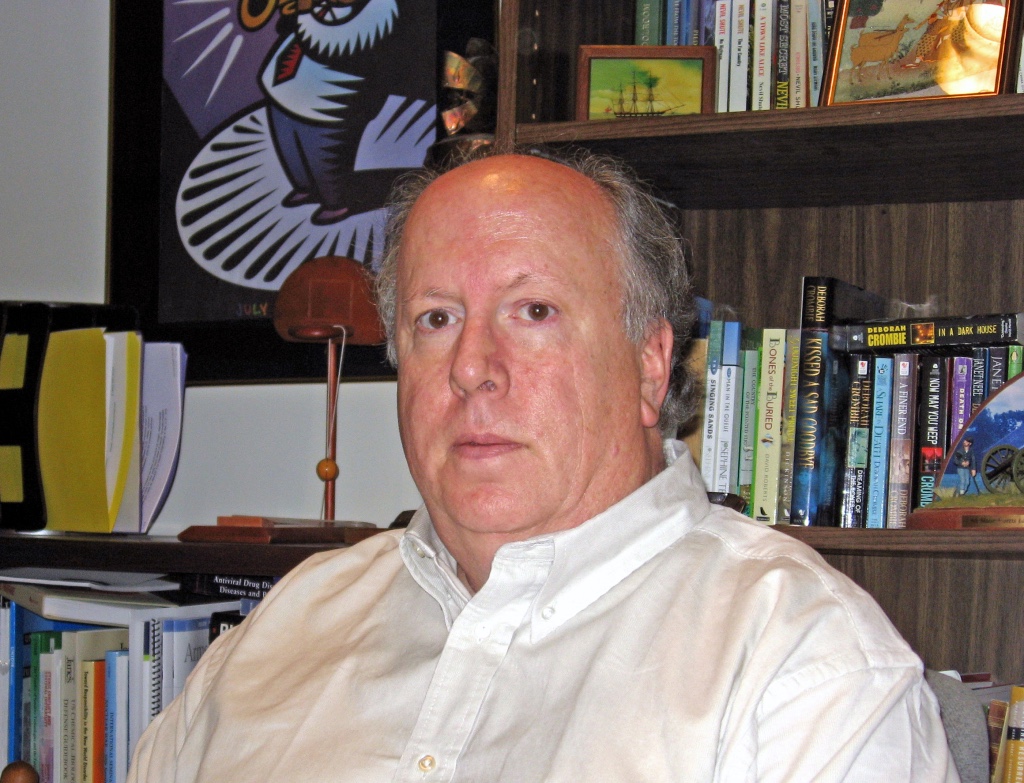Michael Moodie is a student of International Affairs, focusing especially on international and national security issues. In December 2020 he retired after a career spanning five decades. He hopes, however, to continue to contribute to policy thinking on critical security problems confronting the United States and the world.
Mr. Moodie left the Congressional Research Service (CRS) after a decade of service as the Assistant Director in charge of the Foreign Affairs, Defense, and Trade Division, leading and overseeing the work of more than 120 analysts who provide policy analysis and information to all of the United States Congress. CRS works for both Houses, both parties, all committees/subcommittees, and member offices. His portfolio included supervising research and analysis of the full range of issues related to the following areas:
- U.S. foreign policy, institutions, and budgets;
- regional and transnational affairs;
- foreign assistance and international development;
- national security strategies, policies, and budgets;
- military operations, personnel, logistics, acquisition and related issues;
- international trade and finance; and
- foreign policy and national security legislation.
During his career, Mr. Moodie has held a variety of positions in government, the policy research community, and academia.
In government, in addition to his time at CRS, Mr. Moodie was nominated by President George H.W. Bush and confirmed by the Senate as Assistant Director for Multilateral Affairs of the U.S. Arms Control and Disarmament Agency (ACDA). At ACDA, he was responsible for such issues as chemical and biological weapons, conventional arms control (including the Treaties on Conventional Forces in Europe and Open Skies), and confidence building measures. His Bureau also had the lead on U.S. policy relating to the arms control work of the Geneva-based Conference on Disarmament (CD) and the United Nations First Committee. Mr. Moodie was especially involved in the negotiations concluding the Chemical Weapons Convention. He was also involved in regional arms control, serving as Chairman of ACDA Coordinating Groups on Korea and Latin America, and as a member of similar groups on the Middle East and South Asia. He was also head of the U.S. delegations to both the 1991 Biological Weapons Convention Review Conference and the 1992 Review Conference of the Environmental Modification Convention.
From 1983 to 1987, Mr. Moodie held the positions of Special Assistant to the Ambassador and Assistant for Special Projects at the U.S. Mission to NATO, where he concentrated on such issues as the NATO/Warsaw Pact conventional balance, conventional arms control, and alliance defense industrial cooperation. Mr. Moodie also supported the Ambassador’s work with the U.S. Congress, served as liaison with other NATO parliamentarians through the NATO Parliamentary Assembly, and promoted USNATO contacts with leading European think tanks. He also oversaw production of the Alliance Papers, a mission initiative to provide analysis of key issues on the NATO agenda.
He also served as Director for Nonproliferation of the Long-Range Analysis Unit of the National Intelligence Council and Community Manager for the Nonproliferation Community of Interest for the Intelligence Community’s Global Futures Forum. He was also a Fellow at the National Defense University’s Center for Technology and National Security and a consultant to the U.S. Navy, the President’s Foreign Intelligence Advisory Board, and ACDA.
In the policy research community, Mr. Moodie was co-founder and President of the Chemical and Biological Arms Control Institute (CBACI), a nonprofit research organization established to address the challenges to global security and stability in the early 21st century, with a special, but not exclusive focus on the elimination of chemical and biological weapons. As President, he was responsible for all aspects of the Institute’s activity, including oversight of programs, design and implementation of projects, outreach to government, media, and other interested constituencies, administration, and publications.
Mr. Moodie also worked (in two different stints) at the Center for Strategic and International Studies, where he was a Senior Advisor to the President. At CSIS, his substantive work focused on European security issues, conflict in the developing world, U.S. defense policy, maritime affairs, and the arms trade. He also served as the director for the CSIS Working Group on the Future of U.S. National Strategy, co-chaired by then Senator Sam Nunn and Representative Dick Cheney. His role also included such responsibilities as monitoring substantive developments in the Center’s programs and projects, organizing the annual Williamsburg conference for senior members of Congress, and providing support to development efforts. He was also a member of the Editorial Board of the Washington Quarterly, the CSIS journal.
Mr. Moodie is currently an Associate Fellow of the Royal Institute of International Affairs (Chatham House) in London and Secretary of the Board of Trustees of the Wilton Park US Foundation.
In academia, Mr. Moodie has had appointments as Visiting Professor at Georgetown University’s School of Foreign Service and George Mason University, and as an Instructor at Chestnut Hill College.
Mr. Moodie was educated at Lawrence University in Appleton, Wisconsin and the Fletcher School of Law and Diplomacy, Tufts University.

